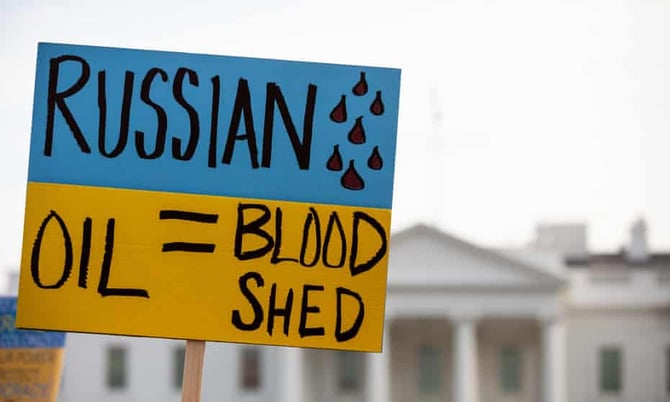Stocks Fall After the US and Allies Consider Banning Russian Oil

Stocks around the world tumbled as the US and its allies mulled over banning Russian oil, a last-ditch move that could have devastating effects on the global economy.
Oil prices soared to their highest level in 13 years, prompting widespread fears of a further bump in inflation that could damage many countries’ attempts to control it.
In Asia, Hong Kong's Hang Seng Index fell as much as 5% in morning trading. Japan's Nikkei tumbled 3.6%. South Korea's Kospi dropped 2.5%. China's Shanghai Composite lost 1%.
Meanwhile, in the US, Dow futures fell 1.3%, a total of 450 points. S&P 500 and NASDAQ futures were down 1.6% and 2%, respectively.
The bad news did not end there. US crude futures surged more than 7% to trade at $124.17 a barrel, the highest level since August 2008. Brent crude also rose to the highest level since 2008, up 8% to $127.66 a barrel.
What does this mean for me?
If the mooted Russian oil ban comes to pass, it is expected to exacerbate the supply-demand imbalance in an already-constrained oil market.
High oil prices pose a threat to company margins and dampen consumer spending optimism. This is expected to be a global problem that will wipe out the efforts of central banks over the last few months to tame the mugger known as “inflation.”
For the investor, the visible symptoms of the Ukraine invasion, such as high oil prices, are a small sign of the market disruption that is to come if analysts' worst fears are realized.
More News

Copper Prices Head Into Uncharted Territory

Silver’s Surge Shows Rate-Cut Bets and a New Layer of Trade Risk
.webp)
Gold’s Breakout Year Sets a High Bar for 2026
.webp)
Europe’s Gas Chill Turns Into a Price Rout

The Rare Earths Boom Driving a New Global Supercycle
.webp)
Brent Rises as Fresh U.S. Sanctions Choke Russian Oil Exports

Global Wind Market Set to Hit $304 Billion by 2029
.webp)